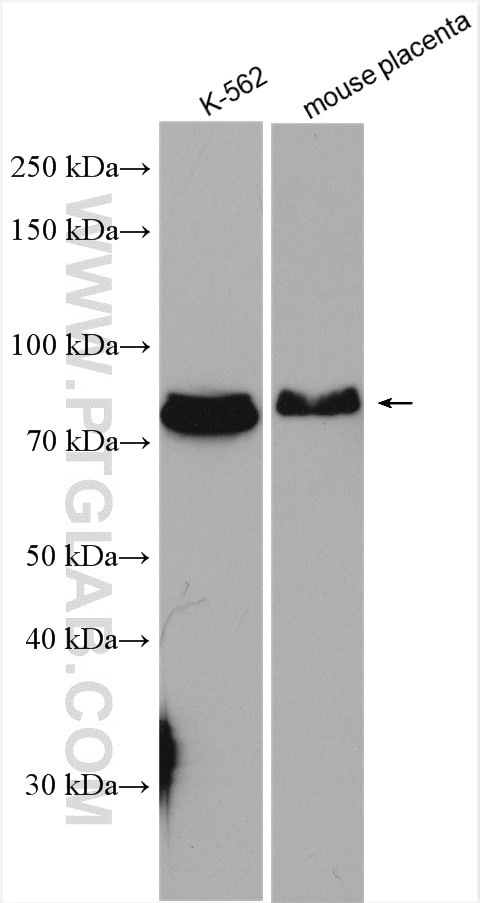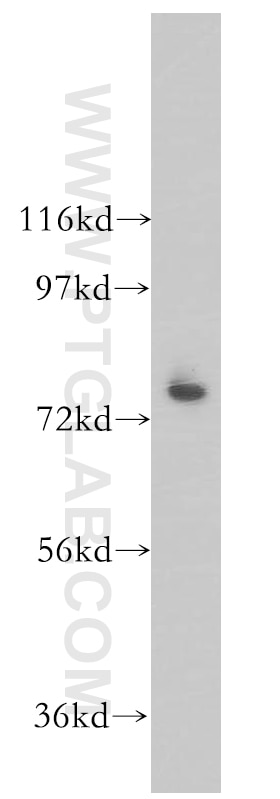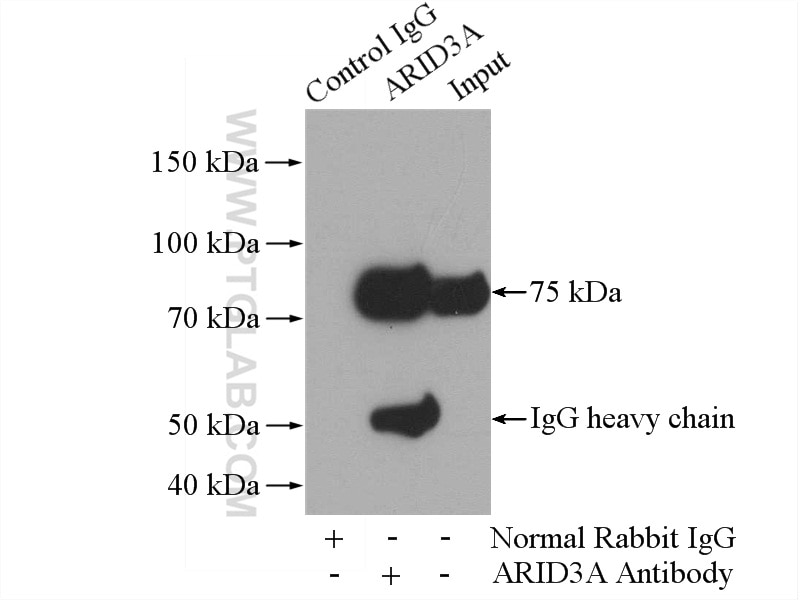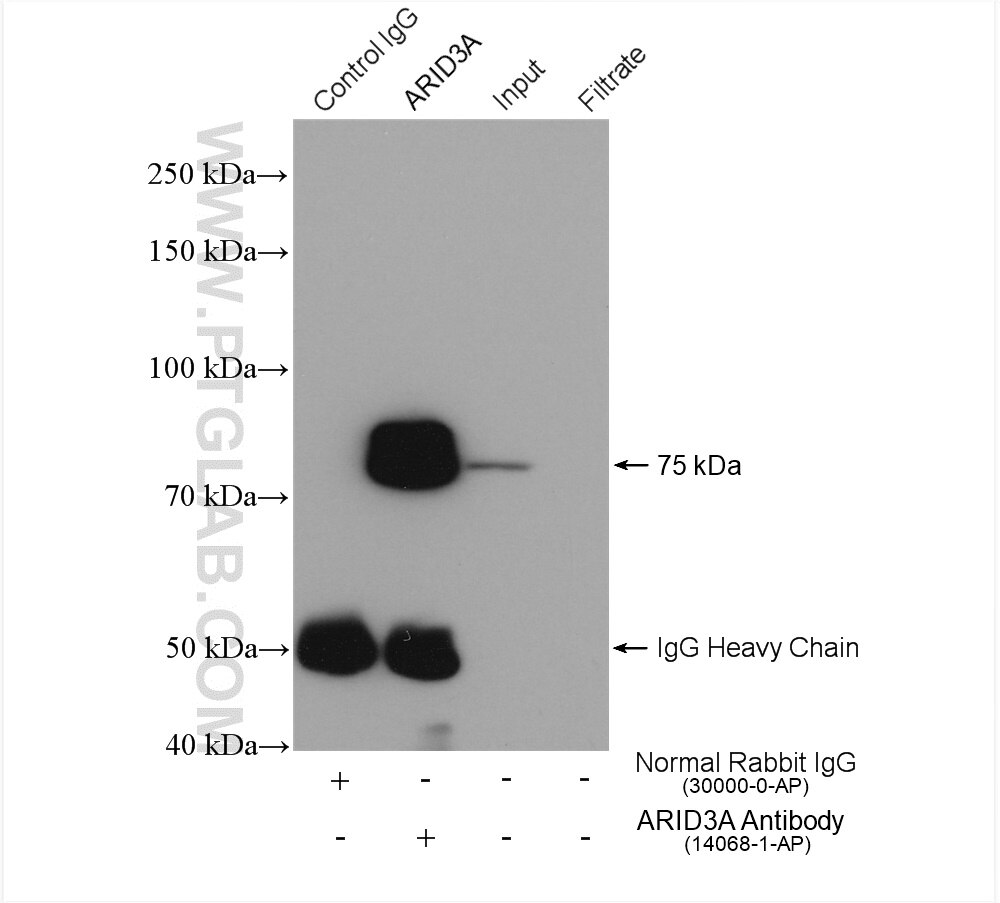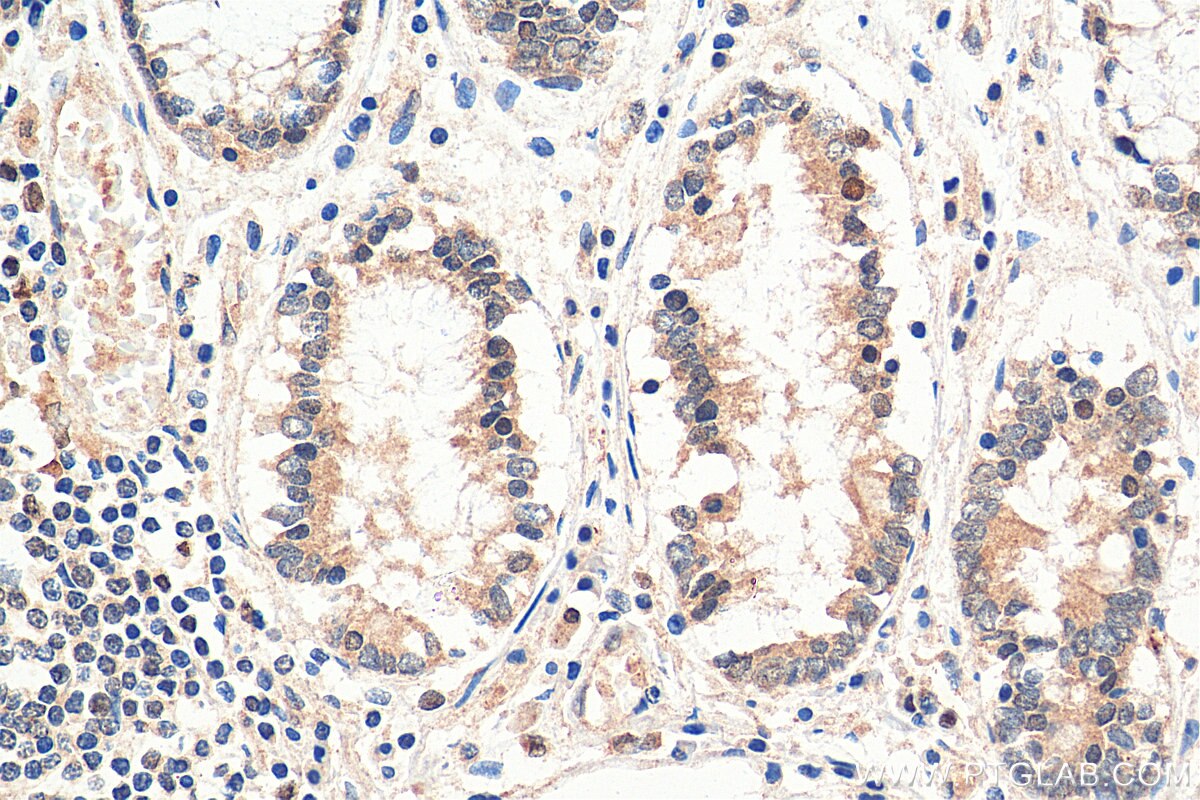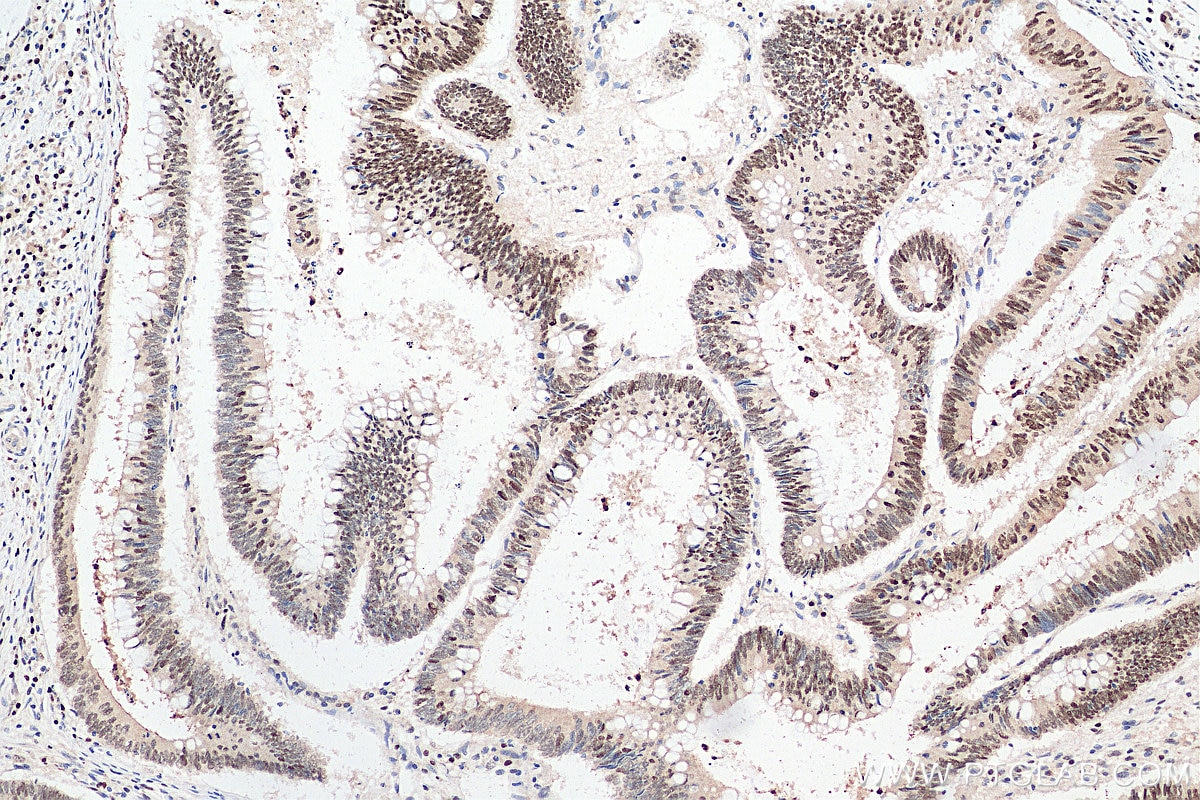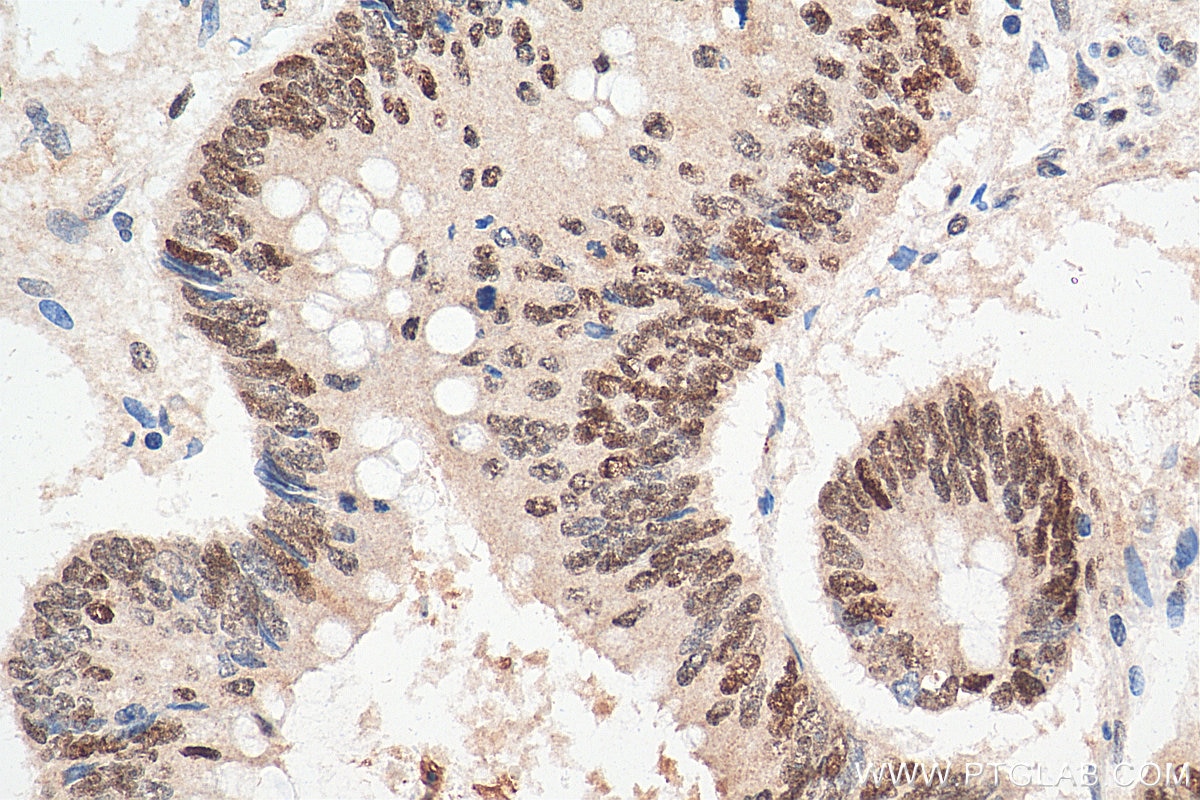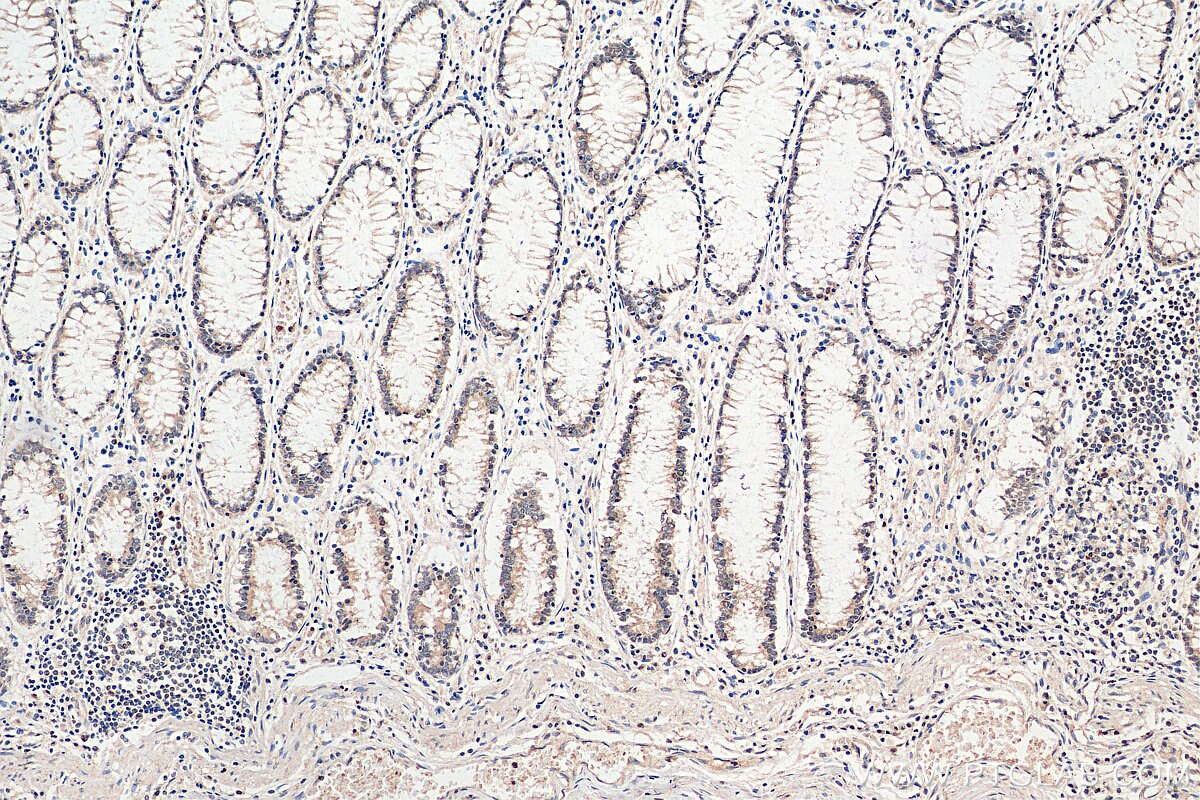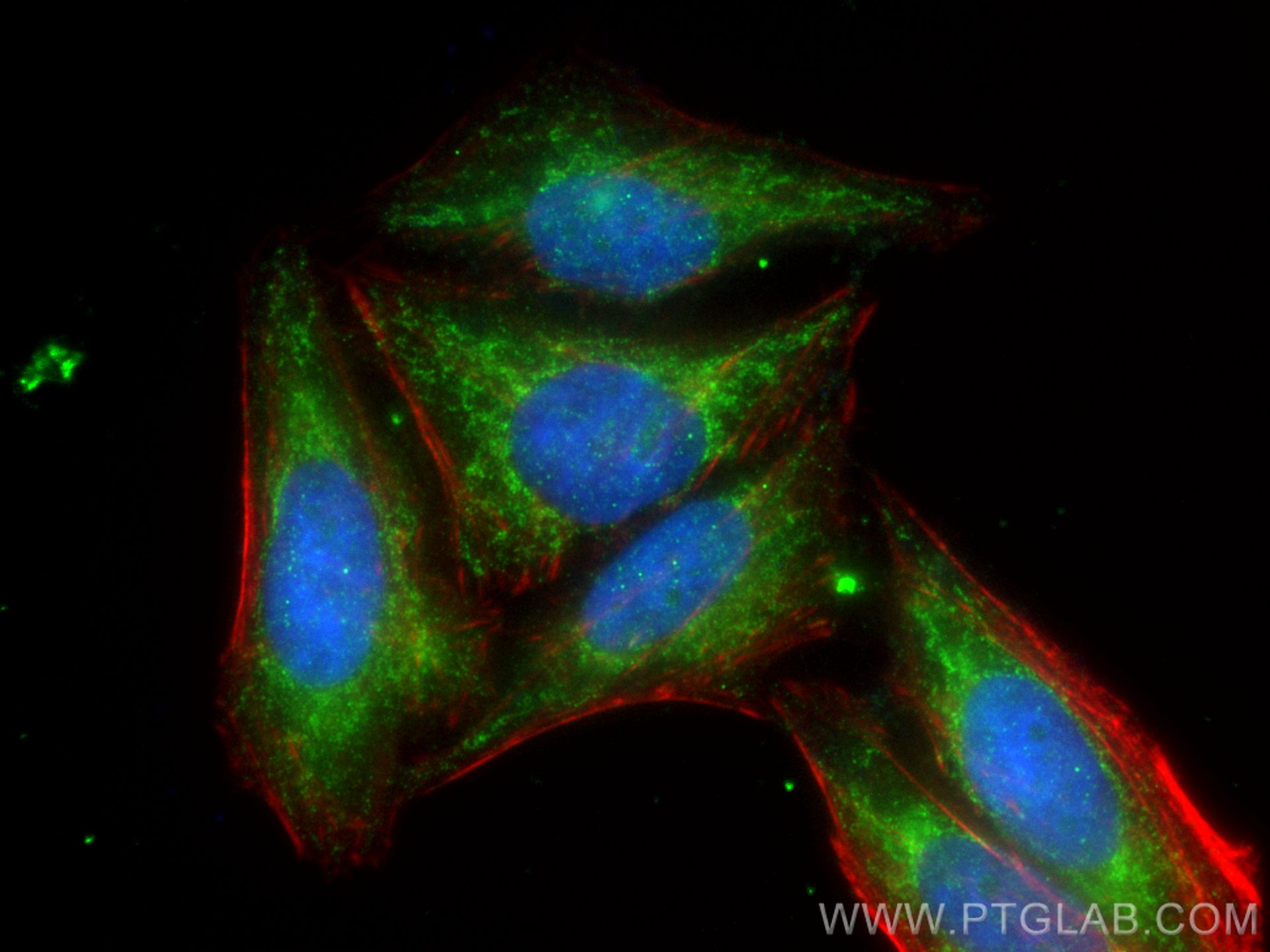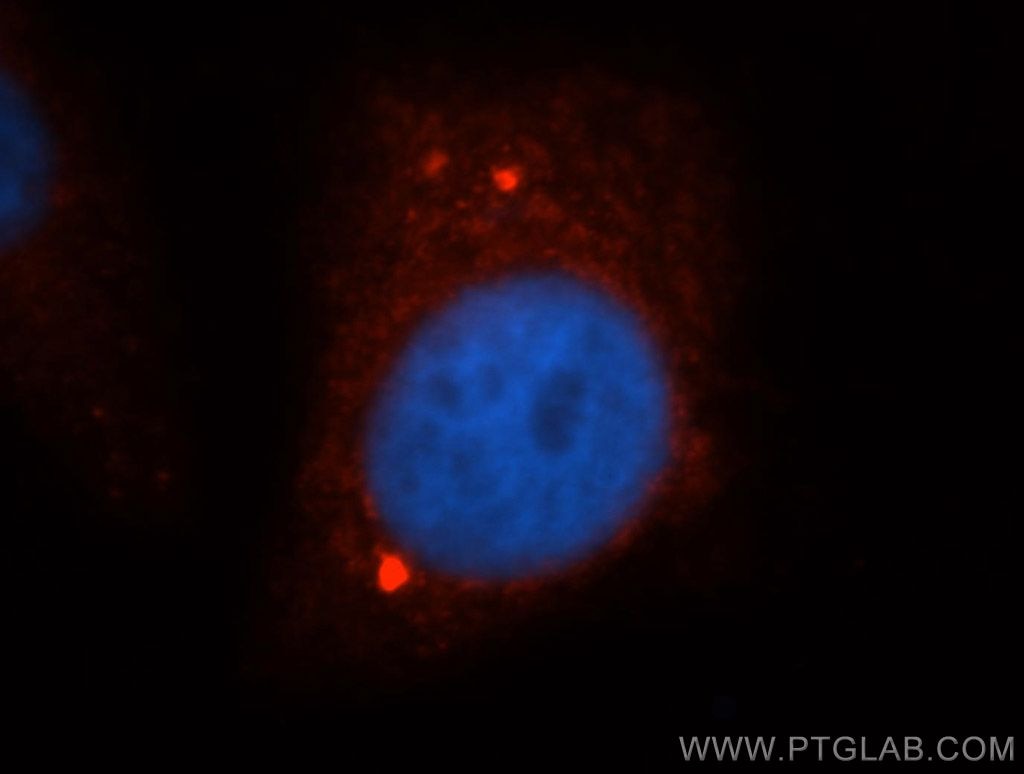- Featured Product
- KD/KO Validated
ARID3A Polyklonaler Antikörper
ARID3A Polyklonal Antikörper für IF, IHC, IP, WB, ELISA
Wirt / Isotyp
Kaninchen / IgG
Getestete Reaktivität
human, Maus
Anwendung
WB, IP, IHC, IF, ChIP, ELISA
Konjugation
Unkonjugiert
Kat-Nr. : 14068-1-AP
Synonyme
Galerie der Validierungsdaten
Geprüfte Anwendungen
| Erfolgreiche Detektion in WB | K-562-Zellen, Maus-Plazenta-Gewebe |
| Erfolgreiche IP | K-562-Zellen |
| Erfolgreiche Detektion in IHC | humanes Kolonkarzinomgewebe Hinweis: Antigendemaskierung mit TE-Puffer pH 9,0 empfohlen. (*) Wahlweise kann die Antigendemaskierung auch mit Citratpuffer pH 6,0 erfolgen. |
| Erfolgreiche Detektion in IF | HepG2-Zellen |
Empfohlene Verdünnung
| Anwendung | Verdünnung |
|---|---|
| Western Blot (WB) | WB : 1:500-1:2000 |
| Immunpräzipitation (IP) | IP : 0.5-4.0 ug for 1.0-3.0 mg of total protein lysate |
| Immunhistochemie (IHC) | IHC : 1:300-1:1200 |
| Immunfluoreszenz (IF) | IF : 1:50-1:500 |
| It is recommended that this reagent should be titrated in each testing system to obtain optimal results. | |
| Sample-dependent, check data in validation data gallery | |
Veröffentlichte Anwendungen
| KD/KO | See 2 publications below |
| WB | See 5 publications below |
| IHC | See 4 publications below |
| IF | See 1 publications below |
| IP | See 1 publications below |
| ChIP | See 1 publications below |
Produktinformation
14068-1-AP bindet in WB, IP, IHC, IF, ChIP, ELISA ARID3A und zeigt Reaktivität mit human, Maus
| Getestete Reaktivität | human, Maus |
| In Publikationen genannte Reaktivität | human, Maus |
| Wirt / Isotyp | Kaninchen / IgG |
| Klonalität | Polyklonal |
| Typ | Antikörper |
| Immunogen | ARID3A fusion protein Ag5124 |
| Vollständiger Name | AT rich interactive domain 3A (BRIGHT-like) |
| Berechnetes Molekulargewicht | 63 kDa |
| Beobachtetes Molekulargewicht | 75 kDa |
| GenBank-Zugangsnummer | BC060828 |
| Gene symbol | ARID3A |
| Gene ID (NCBI) | 1820 |
| Konjugation | Unkonjugiert |
| Form | Liquid |
| Reinigungsmethode | Antigen-Affinitätsreinigung |
| Lagerungspuffer | PBS mit 0.02% Natriumazid und 50% Glycerin pH 7.3. |
| Lagerungsbedingungen | Bei -20°C lagern. Nach dem Versand ein Jahr lang stabil Aliquotieren ist bei -20oC Lagerung nicht notwendig. 20ul Größen enthalten 0,1% BSA. |
Hintergrundinformationen
ARID3A is a nuclear matrix-associated transcription factor that stimulates immunoglobulin heavy chain (IgH) expression and Cyclin E1/E2F-dependent cell cycle progression. It activates IgH transcriptional initiation by binding to ATC-rich P sites within nuclear matrix attachment regions (MARs) flanking the IgH intronic enhancer (Emu) (PMID:17386101). It is the founder of the 13-member (in humans) ARID (AT-Rich Interaction Domain) family, which share a highly conserved DNA binding domain, but functions in diverse biological processes such as cell cycle regulated events, epigenetic post-translational modification, and chromatin remodeling (PMID:15927959,11959810,11283269). The expression molecular weight observed is consistent with what has been described in the literature (PMID: 15922553, 19436740).
Protokolle
| Produktspezifische Protokolle | |
|---|---|
| WB protocol for ARID3A antibody 14068-1-AP | Protokoll herunterladen |
| IHC protocol for ARID3A antibody 14068-1-AP | Protokoll herunterladen |
| IF protocol for ARID3A antibody 14068-1-AP | Protokoll herunterladen |
| IP protocol for ARID3A antibody 14068-1-AP | Protokoll herunterladen |
| Standard-Protokolle | |
|---|---|
| Klicken Sie hier, um unsere Standardprotokolle anzuzeigen |
Publikationen
| Species | Application | Title |
|---|---|---|
Cell Rep Med Personalized drug screening in patient-derived organoids of biliary tract cancer and its clinical application | ||
PLoS Genet Let-7 Represses Carcinogenesis and a Stem Cell Phenotype in the Intestine via Regulation of Hmga2. | ||
Carcinogenesis ARID3A promotes the development of colorectal cancer by upregulating AURKA.
| ||
Ann Surg Oncol High Expression of AT-Rich Interactive Domain 3A (ARID3A) is Associated with Good Prognosis in Colorectal Carcinoma. | ||
Cell Biol Int ARID3A plays a key regulatory role in palmitic acid-stimulated milk fat synthesis in mouse mammary epithelial cells
| ||
